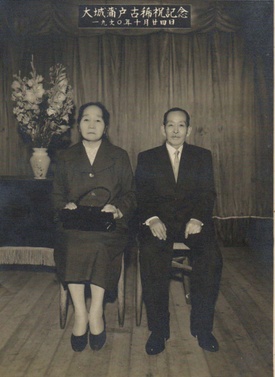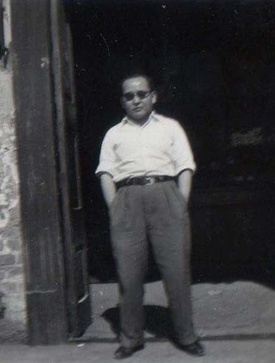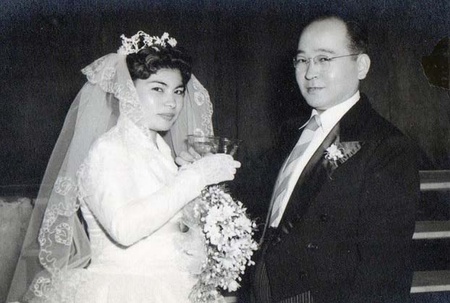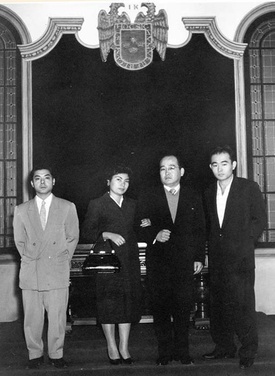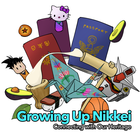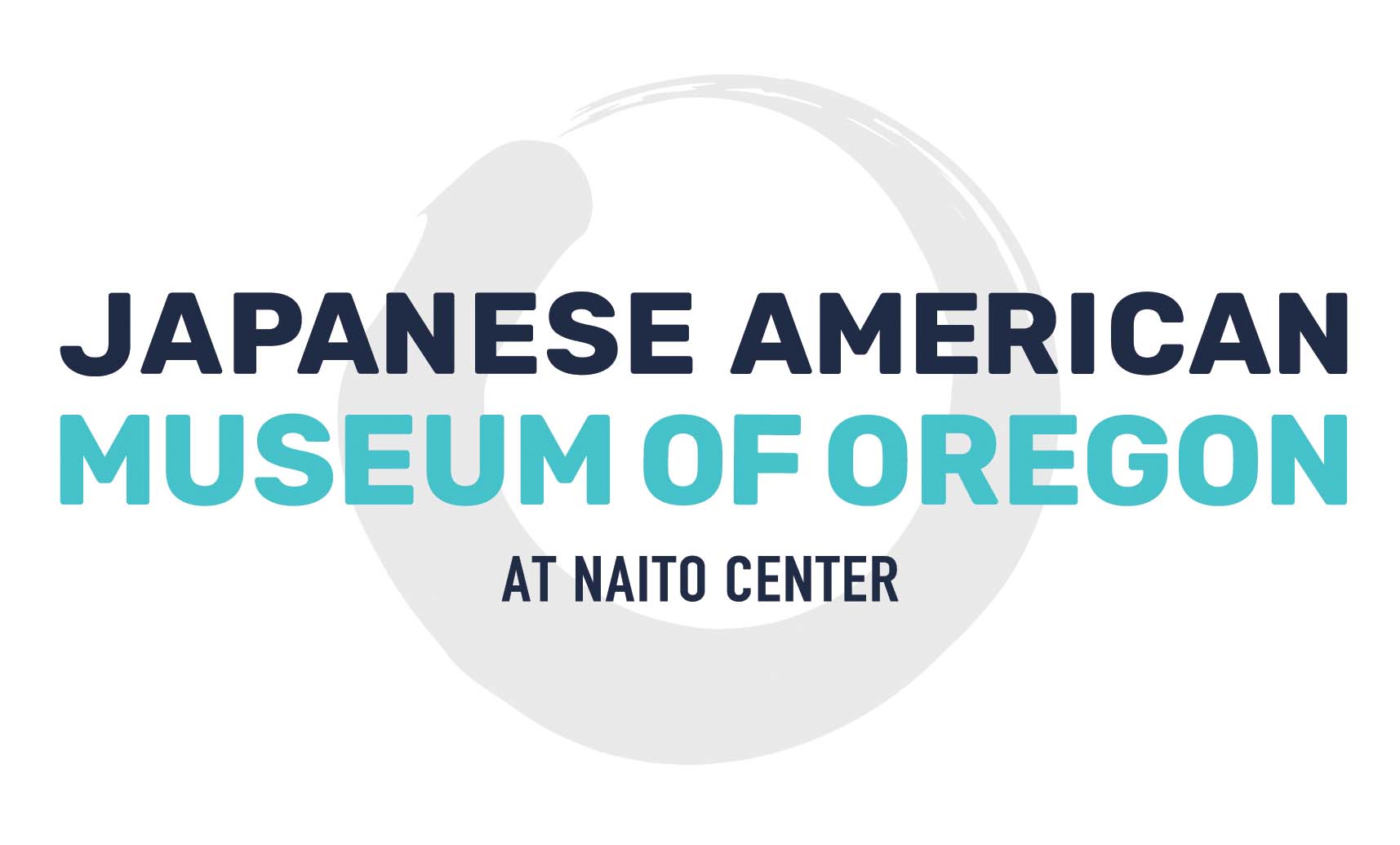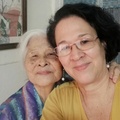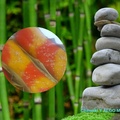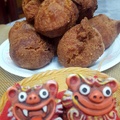It’s the Year of the Rabbit and in October I will be 60 years old. My Okinawan grandparents would say I’m going to celebreate my tushibi1, it’s my year and it should be done according to our customs. It’s a different kind of year. Lately I read that from 60 years old and on, you should be grateful to be alive. If in previous years you were careful, now you have to pay attention to any bad thing that could happen in your year. That’s what my grandparents would say.
The years of our youth are about living in the moment. One is impatient, immediately wanting to experience what’s next in life. Now I see myself looking back. I’m living the autumn of my life. My aches and pains let me know and these knees remind me. It’s a physical pain, but the worst are the pains of my soul. Every memory comes as a flashback. Memories are the dry leaves falling on my autumn, each one with a memory. Jinsei no aki, the autumn of life.
When I was six years old, a relative came and spoke to my mother. She cried silently. After that, my sisters and I were mute witnesses to people scurrying around the house, cleaning, making space, moving cherry boxes from the store, covering all the mirrors, buying things…that day my oba, my grandmother, came home in a coffin. It was the first time that death appeared in my life.
They removed the coffin lid and placed bottles of water, crackers, a lot of other things. At one point everyone was focused on threading needles that were fastened to the lapel of grandmother’s dress. These were the preparations for her last journey to the other side, taking with her the omiyage, gifts for deceased family members.
Tears on distorted faces began to pass by. Some were familiar to me, others I had never seen before. Our dining room became a funeral parlor, in semi-darkness, illuminated only by lamps that seemed like soldiers standing guard.
After the last goodbye and we returned from the cemetery, a photo of oba sat on a white table. Everyone placed osenko, the Japanese incense, on the table. Just one incense stick burned, with the smoke rising to the ceiling, as if drawing a pathway for her. After so much sorrow, slowly we returned to the beautiful memories, to smiles, anecdotes. Each week for 49 days we received family members and friends. They said oba would be with us until that 49th day, when we shared our breakfast, lunch, and dinner with her.
Oba was already going to take her place on the butsudan (family altar for venerating the dead) with oji, grandfather. Now every time we burned incense, they would come, since we’d created a pathway with the smoke.
Little by little we returned to our previous routine. The people who had come every week no longer appeared. That’s when we really began to feel the loss of oba. It took a long time for me to understand that she really was there. Every time I was sad, or had problems at school, I could go to the butsudan and there she was with oji, and I could ask them to help me. But this only lasted a little while. My uncle, my father’s oldest brother, the chonan2, took the butsudan away. Some years later when my uncle died his wife, my aunt, wouldn’t let my father enter his house, due to a disagreement about the ownership of our house.
That’s why, until the day he left us, my father could not put osenko for his parents or for my uncle on the butsudan. For 30 years, he never missed a visit to the cemetery on Father’s Day, Mother’s Day, and Day of the Dead (Obon in Okinawa). Before he died, in an emotional outpouring my father said that his brother had come to get him and accompany him. At last he could be with them. Shoganai, what could we do. It was something we couldn’t change.
My family had a bodega, or small store, in a poor neighborhood near downtown Lima, Peru. In our country, bodega refers to businesses that sell basic goods as well as drinks, even alcoholic ones. We had a room in the back where people drank. People react differently to alcohol. Some were very pleasant and called my father “chino” (Chinese) with affection. But alcohol also transformed that same term, in a different tone of voice, into a pejorative and racist word. Fortunately most of the customers were friendly with my father.
As a little boy I saw my father humiliated many times. He never said anything. He was a quiet man who only listened. Over time I could see that my grandparents, aunts and uncles, and Japanese in general were like this. It made me very angry; I thought they were all cowards. Many years passed before I understood: kuchi wa wazawai no moto, the mouth causes problems, and they weren’t looking for problems in the country that had welcomed them.
Although my father never said anything, he didn’t think that environment was good for us, especially for my mother and sisters. Drunk people aren’t careful with their language or their actions. An environment pervaded by that mix of the smell of beer thrown on the floor, cigarette smoke, and the heavy odor of ammonia from the urinal next to the back room. The stench became even more intense as the tables filled with people raising their voices at each other.
I was 11 years old when father started to find a way out. He told us he was looking for a change, which was happy news for us. We were going to have another business, a bazaar, as they called stores that sold clothing. It was in the Central Market, and he’d gotten financing from the tanomoshi3. My father would no longer sell groceries and alcohol; now he would sell shirts and ties. That was his dream. We were all going to be better off, and besides, he didn’t approve of making a living by selling alcohol. Akusen mi ni tsukazu – bad money won’t stay with you.
Not every beginning is auspicious. Sales were not good at the bazaar, the bills mounted, and fortunately my parents had decided not to close the bodega until everything was stable. As children we were happy to go to the bazaar, always excited about something new. My mother worked alone in the bodega. Years later, she told us that she felt very sad working alone. Her health wasn’t very good, so she only opened the bodega for a few hours. She wondered what else she could do to contribute, and that was when she decided to make sata andagi (sata is sugar and andagi is fried), a type of Okinawan bun.
That’s when people began to come. They called them little Japanese balloons, fried balls. The buns were present at every happy moment, including Oshogatsu (New Year), tushibi, engagement parties, weddings, baptisms, any family celebration. Although we called them round tempura, others called them tempura sata. That Okinawan pastry was the first of many my mother began making to sell at the store.
She opened the bodega at six o’clock in the evening. People waited outside because they knew she fried the sata andagi right before opening so it was freshly made and still warm. My mother’s sata andagi were crispy on the outside and soft on the inside. They didn’t lose their moisture. Rather than being perfectly round, they looked like they had little horns, and sometimes were a bit misshapen. As time passed, I was the one who looked for the ugliest ones. They were the crispiest, and when you looked at them they seemed to smile at you. Our customers also knew that. It helped me understand that sometimes perfection is found in what is imperfect. During those years, my other was a pillar of our family’s finances. Natsukashi, the nostalgia of an affectionate memory.
These are leaves falling onfall my autumn. Every leaf brings memories, some sad, others joyful. Experiences and nostalgia. I try to recall them before the winter of my life arrives. I may not be able to remember them then, so I’m trying to recall as many leaves as I can now.
Notes:
1. Tushibi. From Uchinaguchi, the Okinawan language. A traditional birthday based on the Chinese zodiac with 12 animals. Each animal is celebrated every 12 years.
2. Chonan. First-born, oldest son.
3. Tanomoshi. A form of financing with rotating credit, based on mutual assistance. Originally from Japan and used by Nikkei.
* * * * *
Our Editorial Committee selected this article as one of her favorite Growing Up Nikkei stories in English. Here is her comment.
Comment from Harumi Nako Fuentes
What does it mean to grow up Nikkei and connect with one’s heritage? There isn’t a single answer to that question. For the descendants of Japanese immigrants throughout the world, the connection to their roots is as rich and diverse as the responses received to this call for stories. These accounts speak to us about childhood experiences, learning through art, as well as searching for and rediscovering one’s own identity.
This story, “Jinsei no aki (Autumn of Life),” includes family episodes that bring together traditions and rites, as well as sadness and hope, in an intimate portrayal where many readers may see their own experiences reflected.
Reading the story produces a “natsukashii” effect, as the author says. As a way of ensuring his own experiences aren’t forgotten, he recalls and shares them with readers, capturing us with a nostalgic and moving gaze. The experience of turning 60 years old is transformed from the autumn of life into a springtime where memories and evocations blossom, nurtured by the story’s unique elements and memories of the Nikkei community.
© 2023 Roberto Oshiro Teruya


